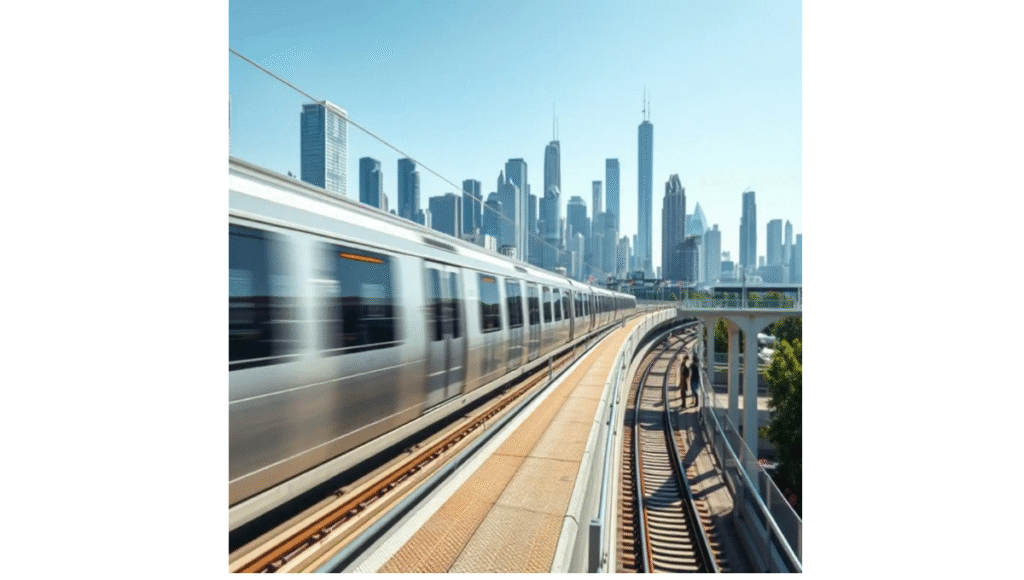
Bengaluru Business Corridor Set to Transform City Commute with Modern Expressway
Bengaluru, often dubbed India’s tech hub, is finally set to witness a long-awaited transformation in its urban infrastructure. The city’s long-stalled Peripheral Ring Road (PRR) project, which has been mired in delays for nearly two decades, is now moving forward under a fresh identity: the Bengaluru Business Corridor (BBC). Promising to ease traffic congestion and boost connectivity across the bustling city, this ambitious development is poised to redefine daily commuting and urban mobility.
The Bengaluru Business Corridor is designed as an 8-lane expressway spread across a 65-metre Right of Way (ROW), making it one of the widest urban road projects in the city. Of the total ROW, 41 metres are dedicated exclusively to the expressway lanes, providing a smooth and efficient flow of traffic for thousands of commuters daily. Beyond just lanes for vehicles, the design incorporates a 5-metre median reserved for a potential future Metro corridor, signaling foresight and long-term urban planning.
One of the standout features of this project is its focus on sustainable and inclusive transportation. Both sides of the expressway will feature 9-metre service roads, designed as two-lane roads for local traffic. An additional dedicated lane for cycling alongside 3-metre-wide pavements for pedestrians ensures that non-motorized commuters can move safely and comfortably. Utility ducts along the corridor will support modern infrastructure needs, while cycle tracks will enhance last-mile connectivity, making it easier for residents and office-goers to access residential and commercial hubs along the route.
The BBC’s alignment has been carefully planned to integrate with existing and future infrastructure projects. It will seamlessly connect with the NICE Road at Electronics City and Madavara (BIEC), with an additional spur road planned toward Major Arterial Road (MAR) for potential integration with PRR-2. The corridor stretches from the west at the Bangalore International Exhibition Centre (BIEC) on Tumakuru Road (NH-4), passes through Ballari Road beyond Yelahanka, and extends to Old Madras Road and Electronics City, finally joining NICE Road at Hosur Road junction. This alignment promises to integrate northwest and northeast Bengaluru into a single, cohesive growth corridor.

City planners and officials highlight that the BBC is more than just a road; it’s a holistic urban solution. The project aims to reduce the perennial traffic jams that Bengaluru residents endure, while also encouraging alternative and eco-friendly modes of transport. By incorporating cycling lanes, pedestrian pathways, and provisions for a future Metro, the corridor is envisioned as a modern, multimodal transport network that meets the demands of a growing metropolitan population.
For residents, this development brings hope of shorter commuting times, safer travel, and a more organized city layout. The expressway is expected to catalyze economic growth along its route, attracting commercial investments, retail establishments, and residential projects. By connecting key business hubs, industrial areas, and residential neighborhoods, the BBC is likely to become a vital artery for Bengaluru’s economic and social development.
The proposals for the Bengaluru Business Corridor are currently awaiting final approval from the state government. Once cleared, the project will mark a significant milestone in Bengaluru’s infrastructure journey, signaling a new era of smart urban planning. Citizens and urban planners alike are optimistic, seeing the BBC as a long-overdue solution that promises efficiency, modernity, and sustainability.
While challenges remain, including land acquisition and integration with ongoing city projects, the Bengaluru Business Corridor exemplifies a forward-thinking approach to urban mobility. It is not just a road but a vision for the future—a city where commuting is faster, safer, and more sustainable, where pedestrians, cyclists, and motorists coexist seamlessly, and where economic growth is supported by modern infrastructure.
The journey of the BBC from conception to execution underscores the importance of patience, planning, and persistence in urban development. For Bengaluru, this corridor represents hope, opportunity, and the promise of a better commuting experience for millions of residents.
Disclaimer: This article is for informational purposes only and does not constitute investment, real estate, or financial advice. Readers are encouraged to verify details and consult appropriate professionals before making decisions related to property, infrastructure projects, or investments.






